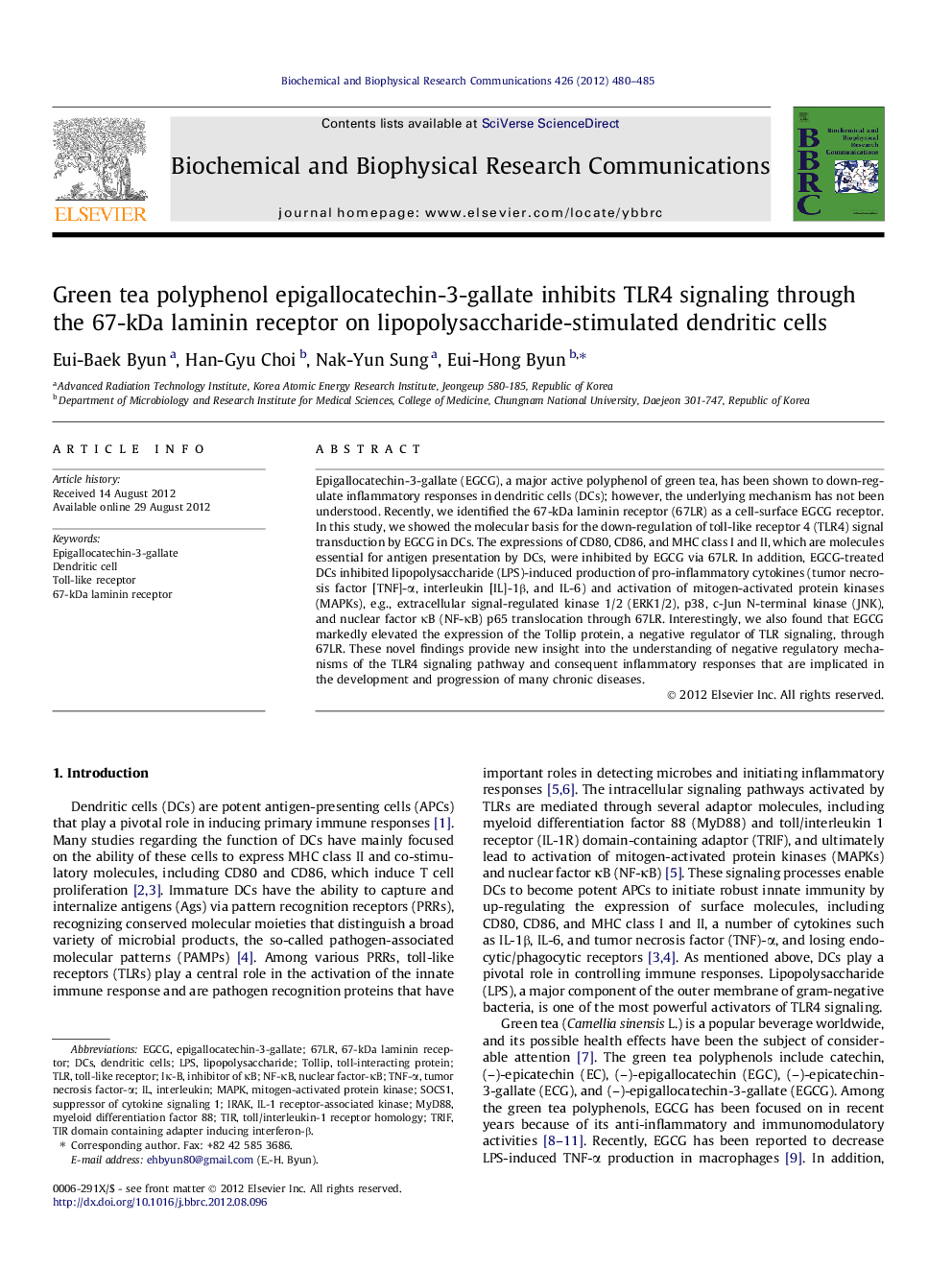| Article ID | Journal | Published Year | Pages | File Type |
|---|---|---|---|---|
| 1929266 | Biochemical and Biophysical Research Communications | 2012 | 6 Pages |
Epigallocatechin-3-gallate (EGCG), a major active polyphenol of green tea, has been shown to down-regulate inflammatory responses in dendritic cells (DCs); however, the underlying mechanism has not been understood. Recently, we identified the 67-kDa laminin receptor (67LR) as a cell-surface EGCG receptor. In this study, we showed the molecular basis for the down-regulation of toll-like receptor 4 (TLR4) signal transduction by EGCG in DCs. The expressions of CD80, CD86, and MHC class I and II, which are molecules essential for antigen presentation by DCs, were inhibited by EGCG via 67LR. In addition, EGCG-treated DCs inhibited lipopolysaccharide (LPS)-induced production of pro-inflammatory cytokines (tumor necrosis factor [TNF]-α, interleukin [IL]-1β, and IL-6) and activation of mitogen-activated protein kinases (MAPKs), e.g., extracellular signal-regulated kinase 1/2 (ERK1/2), p38, c-Jun N-terminal kinase (JNK), and nuclear factor κB (NF-κB) p65 translocation through 67LR. Interestingly, we also found that EGCG markedly elevated the expression of the Tollip protein, a negative regulator of TLR signaling, through 67LR. These novel findings provide new insight into the understanding of negative regulatory mechanisms of the TLR4 signaling pathway and consequent inflammatory responses that are implicated in the development and progression of many chronic diseases.
► Expressions of CD80, CD86, and MHC class I/II were inhibited by EGCG via 67LR. ► EGCG-treated DCs inhibited LPS-induced pro-inflammatory cytokines via 67LR. ► EGCG-treated DCs inhibited MAPKs activation and NF-κB p65 translocation via 67LR. ► EGCG elevated the expression of the Tollip protein through 67LR in DCs.
